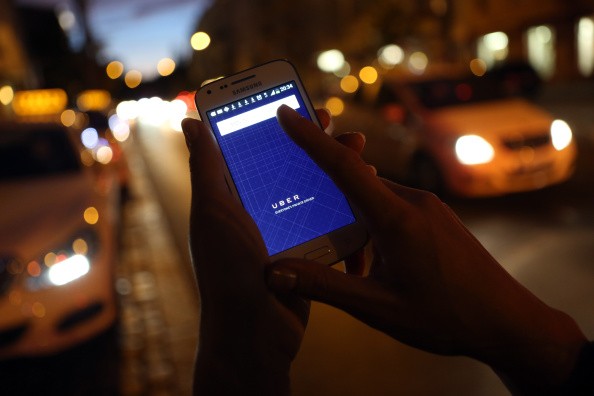A Shanghai taxi company has sent a complaint letter to China's Ministry of Transport, saying that online car-hailing platforms such as Uber and its local rival Didi Chuxing represent unfair competition.
Shanghai Dazhong Taxi & Car Leasing Co. said that there is serious "unfairness" in the conduct of online car-hailing services, which allow privately owned cars to provide transport services, and violates "certain regulations," the company said in a statement to state-owned Global Times.
According to the letter, taxi companies need to comply with very strict regulations on taxes and car insurance, while car-hailing services do not have to follow these standards, imposing an unfair burden on taxi companies.
This is not the first time that taxi companies and drivers have publicly vented their ire toward online car-hailing companies. Taxi drivers in Xian in northeast China's Shaanxi Province and Qingdao in eastern Shandong Province recently went on strike in protest against online car-hailing services.
"These online car-hailing platforms have caused us losses," a Shanghai-based taxi driver surnamed Liu told the Global Times on Thursday, claiming that he loses 50 yuan ($7.6) in income every day as more people flock to transport services online.
Didi, Uber, and the Transport Ministry have yet to reply to the the Global Times interview as of Thursday.
"Certainly the online car-hailing sector needs regulation," said Zhao Zhanling, a lawyer with the Beijing Zhilin Law Firm.
However, he believes the government is unlikely to ban online car-hailing services, as it is already a huge market and prohibiting it would hurt public interest.
Zhao added that the taxi industry itself needs to conduct reforms, noting that the cost of operating taxis is too high due in part to government-mandated fees and must be improved.
In October the past year, the Transport Ministry released a draft regulation that requires private cars used in online car-hailing platforms to be registered as commercial vehicles. The draft also pushed for car-hailing services to purchase insurance for their customers.
"The draft was very controversial," said Zhang Xu, an industry analyst at Internet consultancy Analysys International, adding that it was widely considered as too strict.
The statement from Shanghai Dazhong also cited safety concerns as another reason for tighter regulation of its online competitors. In May this year, a woman was reportedly murdered by a Didi driver in the southern city of Shenzhen, according to local media reports.
"The [car-hailing] sector does need more regulation, and at the same time the companies themselves need to make managerial improvement," Zhang noted.
Earlier in March, Didi issued a security guide and conducted a trial function that offered speed dialing to the police via its app. The company also said it will invest about 100 million yuan per year in order to improve safety.



























